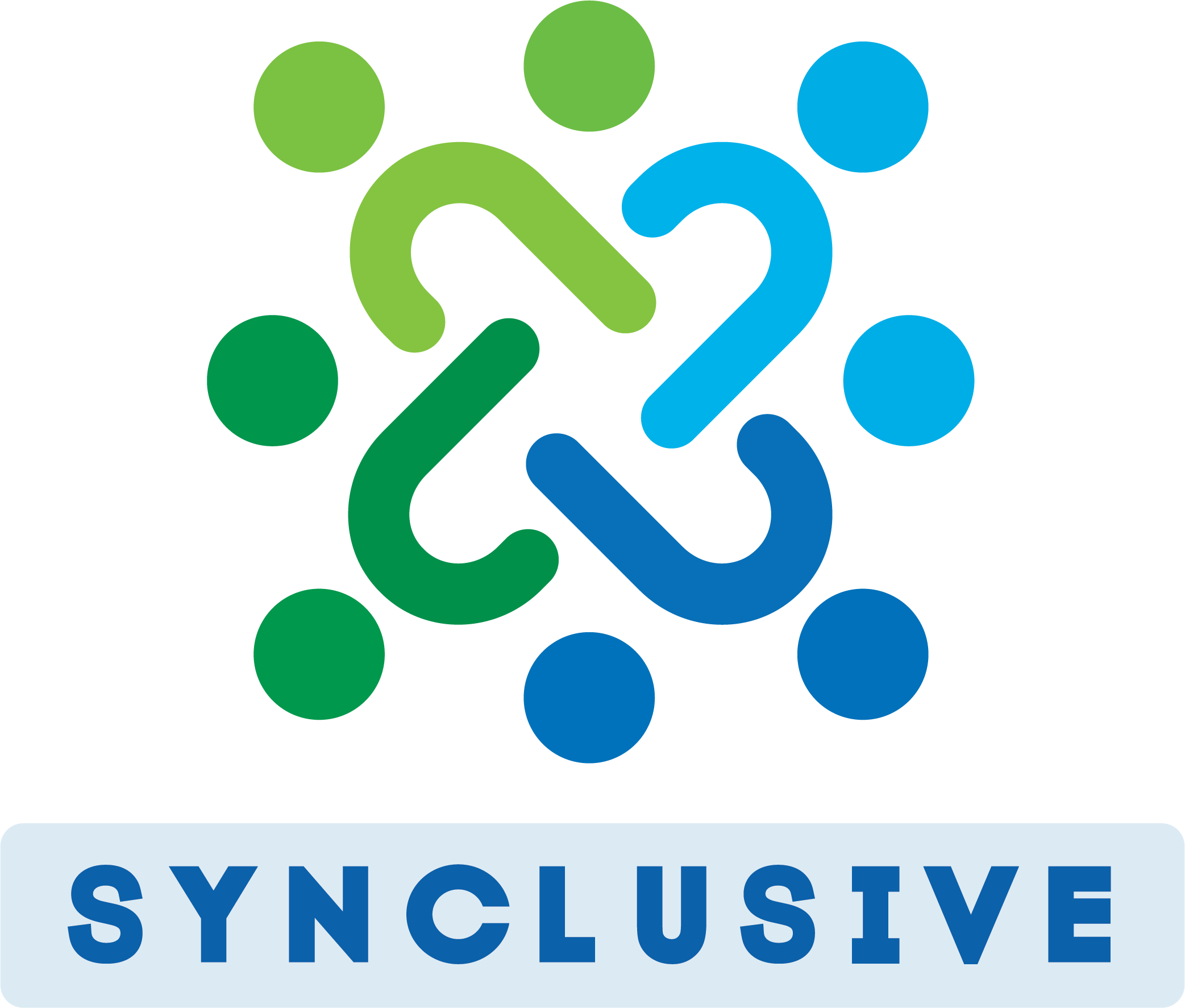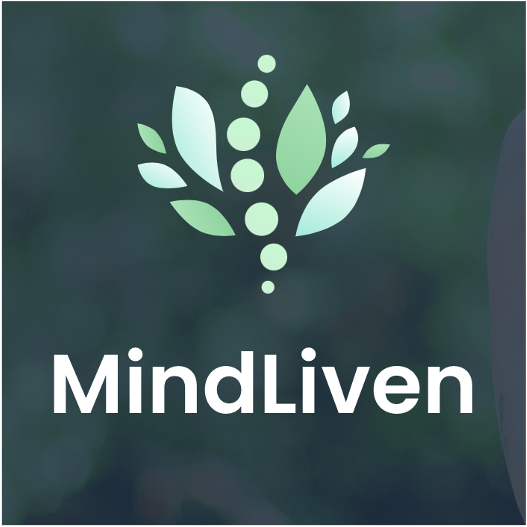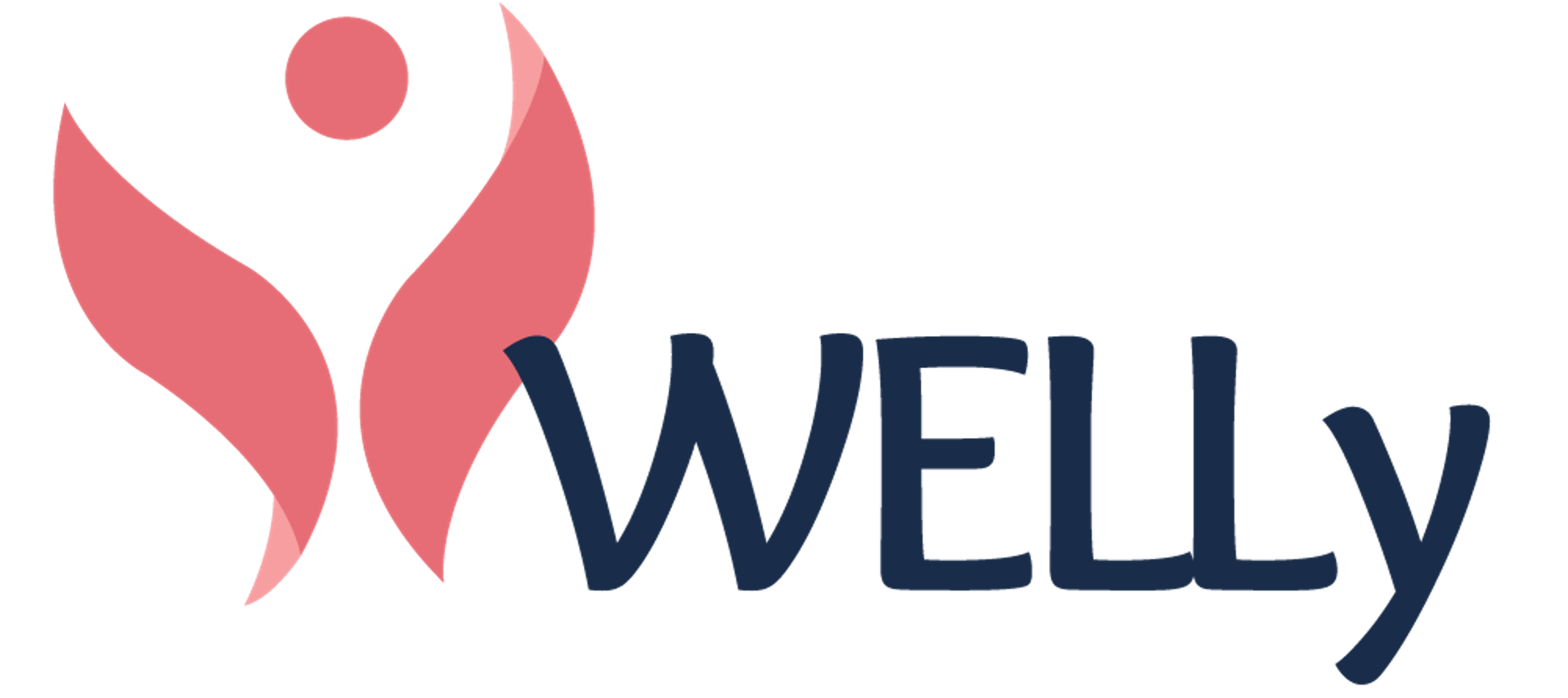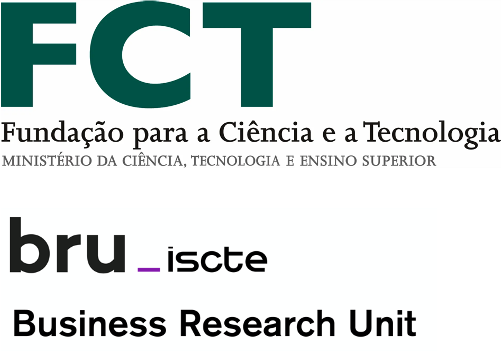Feedback por um agente de inteligência artificial para melhorar os processos interpessoais das equipas
Investigadora Responsável
O projecto irá desenvolver e treinar um agente de IA na identificação de padrões relevantes de conflito e afeto durante a interação da equipa, em texto e vídeo, e na transmissão de feedback adequado em tempo real. Três estudos irão testar o papel do feedback conduzido pelo agente na dinâmica e nos resultados da equipa (desempenho, regulação dos afectos, engagement), bem como o papel das características do agente na sua aceitação pela equipa.
Abordagem sistémica para eliminar as lacunas de emprego e criar um mercado de trabalho mais inclusivo para grupos vulneráveis
Investigadora
SYNCLUSIVE é uma abordagem de sistemas inovadores, integrais e interdisciplinares para estimular a inclusão de grupos vulneráveis no mercado de trabalho. Para isso, os seis objetivos centrais são: 1) desenvolver e consolidando uma coalizão de partes interessadas em 4 Living Labs regionais em toda a Europa nos moldes da Comunidade Teoria da Ação de Coalizão, usando a abordagem ENGINE. Esta abordagem inclui um pacote integrado de intervenções que estimulem a mobilidade ascendente e lateral de trabalhadores vulneráveis, criando assim vagas para entrada de candidatos a emprego vulneráveis; 2) testar a utilidade e aplicabilidade da abordagem ENGINE para diferentes grupos vulneráveis identificados como discriminados; 3) identificando impulsionadores e barreiras para mobilidade e influxo incluindo discriminação; 4) avaliar o impacto da abordagem ENGINE implementada sobre a mobilidade no mercado de trabalho e inclusão de grupos vulneráveis; 5) identificando caminhos de transição do regional ao nível da política nacional e da UE; e 6) identificar indicadores e padrões interoperáveis e comparativos que são relevantes para a inclusão no mercado de trabalho de grupos vulneráveis, tendo em conta as necessidades regionais, nacionais (legislativo) e contexto cultural.
Informação do Projeto
2023-03-01
2027-02-28
Parceiros do Projeto
- BRU-Iscte (Gestão)
- CIES-Iscte
- ISTAR-Iscte
- TNO - Líder (Países Baixos (Holanda))
- ARC FUND - (Bulgária)
- FIOH - (Finlândia)
- SDA - (Bulgária)
- INAIL - (Itália)
- UvT - (Países Baixos (Holanda))
- UCC - (Irlanda)
- AMF - (Países Baixos (Holanda))
- CENTAR - (Estónia)
- TERMCERTO - (Portugal)
- LAO - (Portugal)
- REDO - (Portugal)
- PACT - (Portugal)
- IEFP - (Portugal)
- KOK - (Finlândia)
MINDLIVEN - Mindfulness-in-Nature Based Training through Virtual Environments
Investigadora
Over the last decades, social and emotional learning (SEL) has been increasingly acknowledged to impact on competency areas such as self-awareness, self-management, social awareness, relationships skills, and responsible decision-making. Mindfulness training is a multimodal intervention informed by the principles of positive psychology, with a central focus on skills that enable more effective coping and stress reduction. The application of mindfulness-based practices (MBP) has been strengthened by the results of evaluation studies that typically report on the positive effectiveness of MBP in terms of SEL. In parallel, research results show that exposure to natural environments arouses positive emotions and stress recovery, and improves compliance to mindfulness training, making it more effective. As such, the role of nature in the workplace is receiving increased attention, and existing theory and research suggest that nature contact can be considered as a workplace strategy for reducing stress, while at the same time enhancing performance and overall well-being. Therefore, Mindfulness-in Nature-based practices (MiNBP) joins together the healing effect of nature and the distressful effect of MBP, with greater benefits. It is therefore essential for company’s managers to understand how MiNBP has the potential to benefit their staff towards a systematic approach to SEL, in particular when considering the perspective of the five-competency-area framework.
Informação do Projeto
2020-12-01
2023-05-31
Parceiros do Projeto
- BRU-Iscte (OB&HR)
- Universita degli Studi di Verona - Líder (Itália)
- Fundacja “Malopolska Izba Samorzadowa” - (Polónia)
- USE - (Espanha)
- Virtual Campus Lda - (Portugal)
- Creative Thinking Development - (Grécia)
- Unione Territoriale Sindacale CISL Vicenza - (Grécia)
WELLy: Introducing the job profile of a Manager for Work Well-being to prevent and combat work related stress
Investigadora Responsável
General Objective: Work-related stress is now widely recognised as a significant problem as its costs can involve high levels of sickness absence, accidents, errors,
low morale and poor performance. Work-related stress is conditioned by, and contributes to, major environmental, economic and health problems. It has a
significant impact on the well-being of staff, their productivity and effectiveness, and much of it is likely to be preventable.
Given the exponential increase of work-related stress issues and the diffusion of depression among the European citizens, the WELLy project aims to set the role of Work Well-being Manager (WWM) in charge of making sure that daily working conditions are fair and as healthy as reasonably possible for every employee so that the overall quality of life at work improves within the organisation and across economies.
Specific Objectives: The proposal aims to encourage a proactive approach and highlight the major role managers can play in reducing the problems of stress. For
this reason the profile of Work Well-being Manager will be introduced: he/she has a cross-functional role which leverages psychological skills including diversity
management, particularly when it comes to disabled persons as they often require specific adjustments of their work environment. On top of this, the Work Well-being Manager cooperates with other departments to analyse the issues caused or that could cause work-related stress, and to reduce psychosocial risks and improve employees’ commitment and engagement.
Informação do Projeto
2019-09-01
2022-08-31
Parceiros do Projeto
- BRU-Iscte (OB&HR)
- Sinergie Società Consortile a Responsabilità Limitata - (Itália)
- DRUSTVO ZA RAZVIJANJE PROSTOVOLJNEGA DELA NOVO MESTO - (Eslovénia)
- Psychometrics srl - (Itália)
- EPRALIMA - (Portugal)
- INSTITUTE OF ENTREPRENEURSHIP DEVELOPMENT - (Grécia)
- INSTALOFI LEVANTE SL - (Espanha)
- FAKULTETA ZA ORGANIZACIJSKE STUDIJEV NOVEM MESTU (Slovenia) - Líder (Eslovénia)
Prevenção Participativa dos Riscos Psicossociais Emergentes nas PME´S
Investigadora
Psychosocial Risks prevention was identified as a key priority and the recognition of the significant changes in the work context contributed for emphasizing Emergent Psychosocial Risks - EPR (e.g., precarious contracts, ageing workforce, and family-work conflict) (EU-OSHA, 2007). The contextual factors and risk management practices critical for prevention have been evidenced in research and support the European policy and national strategies and obligations. However, ESENER survey reveal that these policies did not yet consolidate into generalized good practices (EU-OSHA, 2010, 2012).
It is also acknowledged that social dialogue is a key factor for improving quality in work (EC, 2003), implementing participative solutions and empowering the stakeholders increase the success of the preventive actions. The accomplishment and positive outcomes of this involvement require that the stakeholders have opportunity to participate and that their perspectives are taking into account.
The current societal and economic crises amplified the threats related to psychosocial risks. In this context SMEs are more vulnerable and also facing bigger challenges for initiating, maintaining and improve prevention initiatives.
The present action intends to contribute for an efficient promotion of knowledge dissemination and offer an informative toolkit for preventive actions towards EPR that SMEs are facing, cross industry and cross sector. This will be achieved using social dialogue with different formal stakeholders. Action specific objectives are: Map the SMEs knowledge about EPR; Identify best practices and main obstacles perceived by SMEs Stakeholders; organize a workshop with stakeholders to disseminate and debate knowledge, action plans and a tool kit; develop a tool kit that can be easily used by SMEs.
The action targets SMEs in four European countries that are facing severe societal challenges due to the economic crisis (Portugal, Italy, Greece and Spain).

 English
English





